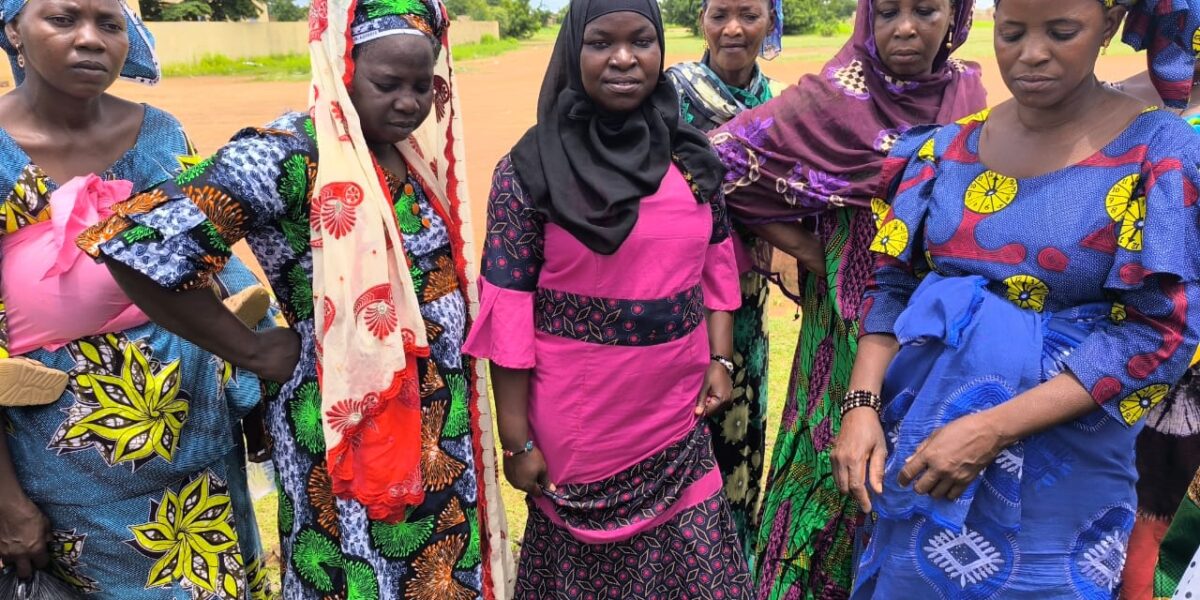Rural women are key players in farming communities. They make up about 43% of the global agricultural workforce, but they have limited access to resources, education, land, and technology. International Rural Women’s Day, celebrated every October 15, highlights their essential contribution to food security, climate resilience, and social cohesion. But it also aims to raise awareness of these extreme inequalities among policymakers, NGOs, and the local community.
Being a rural woman in the Sahel means being the backbone of the family, playing a key and hugely important role in the economic survival of the family and community. She is responsible for ensuring the transmission of knowledge and traditions and for managing the household and its resources, but has no decision-making power within her family or community.

During the day, their duties have to be carried out in the fields and with the animals, often working in intense heat. Few rural women in the Sahel own any farmland or are involved in any trade, which limits their economic autonomy. Their dependence on agricultural activity makes them particularly vulnerable to climate change: frequent droughts, soil degradation, crop losses…
Rural women in the Sahel are deeply attached to their families and to local traditions and cultural practices, which are often the cause of their physical and mental suffering.
Their literacy levels are generally low and access to formal education is limited. These constraints expose them to gender-based violence, unequal opportunities, greater health risks, and social limitations.
All of this has a direct impact on their livelihoods, food security, and economic autonomy.
The impact of conflict and displacement
Ayuda en Acción’s work with rural women consists of highlighting the strength, resilience, and contribution of rural women in the Sahel by promoting their economic and social autonomy. We work to help displaced and local women achieve economic independence and access to employment and entrepreneurship. Many of them cannot read or write, but being illiterate does not prevent them from undertaking new ventures, progressing, and fighting every day to improve their lives, although it can have a negative impact on the development of their businesses or activities. Resilience and perseverance are two qualities that stand out among rural women in the Sahel, who see how, thanks to the support of Ayuda en Acción, their food security is ensured. This allows them to focus on improving their families’ living conditions through agricultural production and livestock farming, with our support in the form of seeds and training.
The instability and displacement caused by armed conflicts in the Sahel, linked to terrorist groups in the border areas of Mali, Burkina Faso, and Nigeria, severely affect the lives of women and young people.

This situation causes massive population displacement (internally displaced persons and refugees). Displaced women are exposed to violence (sexual violence, exploitation, trafficking, forced marriages to obtain income or reduce the number of mouths to feed). They lack safe shelters and protection in camps, which exacerbates their vulnerability. Most must bear the burden of caring for their families alone, in the absence of men who have migrated in search of work or are involved in the conflict. Psychological and social pressure increases, and resources to cope with it are scarce.
Instability and displacement have a negative impact that exacerbates the social, economic, and psychological vulnerability of women and young people in Niger. These displaced populations need greater protection, better access to basic services, and support to rebuild their lives.
Success story: Ayére Keita, producer of sack gardens in Sékoro
In 2024, we began implementing sack gardening, and now many women are enjoying the benefits of having their own vegetable garden at home. One of them is Ayére Keita, chairwoman of the Sékoro women’s group: “Before this initiative, I thought it was impossible for me to have a small vegetable garden because I didn’t have any land near my house. When I received my sack for growing vegetables and learned how to use it, I discovered that many types of vegetables could be grown in such a small space. Today, I harvest my own tomatoes, okra, and peppers. This has reduced my expenses at the market and improved my children’s diet.”

The crops are completely organic: no chemical fertilizers or pesticides, only natural methods that protect health. Rural women in the Sahel received four sacks for growing vegetables as part of this project.
“My advice to other women is to give it a try,” says Ayére. “With a sack garden, you can feed your family and even sell a little to earn some income. You just have to try it and be patient.”


